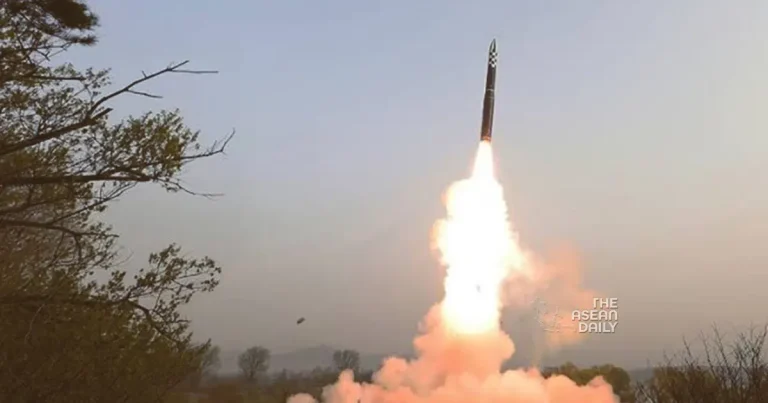14-1-2024 (SEOUL) In a move heightening regional tensions, North Korea fired a suspected intermediate-range ballistic missile on Sunday, as reported by Seoul’s military. The launch occurred just days after Pyongyang conducted live-fire exercises near the maritime border with South Korea.
Seoul’s Joint Chiefs of Staff (JCS) released a statement revealing, “Our military detected one suspected intermediate-range ballistic missile launched from the Pyongyang area towards the East Sea” at approximately 2:55 pm local time (5:55 am GMT). The East Sea is also known as the Sea of Japan.
The statement provided limited details, emphasizing ongoing analysis of the missile’s specifications by authorities in Seoul, Washington, and Tokyo. The JCS assured that South Korea’s military remains on full readiness, actively sharing information about the launched missile with the United States and Japan.
Japan’s coast guard independently confirmed the suspected missile launch by North Korea, citing information from the country’s defence ministry. It issued warnings to vessels in the region to exercise caution.
North Korea’s most recent missile test involved a Hwasong-18 solid-fuel intercontinental ballistic missile (ICBM), fired into the East Sea on December 18. The current launch follows a series of rare live-fire drills conducted by North Korea near the maritime border with South Korea. In response, South Korea initiated counter-exercises and issued evacuation orders for select border islands.
The geopolitical situation escalated further earlier in the week when North Korean leader Kim Jong Un referred to Seoul as his “principal enemy” during a tour of major weapons factories. Kim’s statement, reported by the official Korean Central News Agency (KCNA), marked a significant shift into what analysts describe as an “ultra-hawkish mode.”
Relations between North and South Korea have reached a historic low, characterized by North Korea’s formal recognition of its permanent status as a nuclear power in its constitution. The regime, led by Kim Jong Un, has also conducted several advanced ICBM tests, including the launch of a reconnaissance satellite into orbit.
Despite international calls to halt its nuclear and ballistic missile programs, North Korea has consistently maintained its commitment to its nuclear weapons program, viewing it as crucial for its survival. The United Nations Security Council has issued multiple resolutions urging North Korea to cease such activities since its first nuclear test in 2006.




